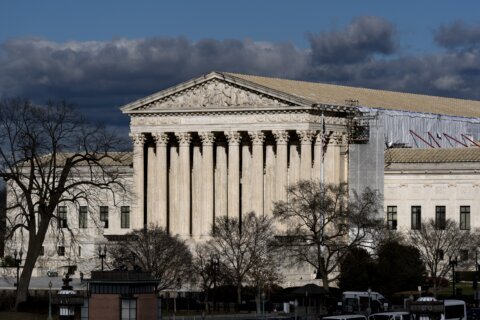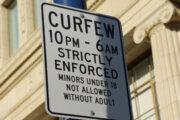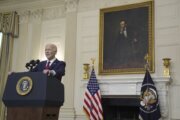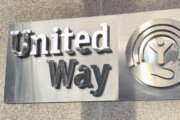MIAMI (AP) — For more than two years, almost since the time of his arrest on U.S. warrant, Alex Saab has insisted he is a Venezuelan diplomat targeted for his work helping the South American country circumvent American economic sanctions.
Starting Monday, the Colombian-born businessman will get a chance to prove that claim to a federal judge in Miami tasked with weighing evidence that purportedly backs his diplomatic status.
A handful of protesters carrying the Venezuelan flag and signs reading “Free Alex Saab” Monday stood outside as a large contingent of prosecutors and defense attorneys carrying stacks of binders filed into the Wilke Ferguson federal courthouse in downtown Miami.
Saab, 50, was pulled off a private jet in the summer of 2020 during a fuel stop in Cape Verde en route to Iran, where he was sent to negotiate oil deals on behalf of President Nicolas Maduro’s socialist government. The charges: conspiracy to commit money laundering tied to a bribery scheme that allegedly siphoned off $350 million through state contracts to build affordable housing for Venezuela’s government.
Saab was initially held up as a trophy by the Trump administration, which made no secret of its efforts to oust Maduro, who is himself facing U.S. drug trafficking charges.
But the criminal case has become a major sticking point as the Biden administration seeks to improve relations with the OPEC nation and tap new oil supplies to make up for a loss of exports from Russia following sanctions over its invasion of Ukraine.
At issue are the limits of diplomatic immunity from prosecution, and whether Saab even has a basis under U.S. law to assert that he was a “special envoy” sent on a secret, humanitarian mission by Maduro to negotiate with Iran’s Islamic government.
Saab’s attorney’s presented as evidence what they claim are diplomatic notes exchanged between Iran and Venezuela discussing what was to be Saab’s third trip to Iran in a matter of weeks. At the time of his arrest, Saab was also allegedly carrying a sealed letter from Maduro to Iran’s Supreme Leader seeking his full support for a planned deal to import fuel at a time of long gas lines in Venezuela.
“This really is one of those cases if it looks like duck, acts like a duck, quacks like a duck then it is a duck,” Jonathan New, one of Saab’s attorneys, said in an opening statement. “Mr. Saab was and is a special envoy.”
But Assistant U.S. Attorney Alex Kramer argued that some of the documents underlying that claim were falsified “to provide some sort of credibility to this argument that he was some sort of special envoy.”
Those include a diplomatic passport, which Saab wasn’t carrying at the time of his arrest and which contains a picture and signature matching another, non-diplomatic passport issued two years earlier.
They also question the authenticity of the Venezuelan government’s Official Gazette from April 26, 2018 where he was purportedly appointed special envoy by presidential decree. A printed copy of that same edition – No. 6,373 – held at the U.S. Library of Congress and a digital version on the Venezuelan Supreme Court’s website contain no mention of his purported appointment.
The tug of war has been further complicated by the revelation that Saab, prior to his arrest, had been signed up as an informant by the U.S. Drug Enforcement Administration and had been providing it with information about corruption in Maduro’s inner circle.
Judge Robert Scola’s courtroom was packed with mostly supporters of Venezuela’s government. Also in attendance was a law school friend of Eyvin Hernandez, an American attorney with the public defender’s office in Los Angeles who was taken into custody by Venezuela on its border with Colombia this year and charged with attempting to enter the country illegally.
For month, speculation has been swirling that Saab could walk free as part of some sort of prisoner swap for Hernandez and up to three other Americans detained in Caracas. A similar deal for two nephews of Maduro convicted in New York on drug charges secured the release of seven other Americans detained in Venezuela in October. The Biden administration has insisted that no such negotiations are taking place.
The hearing is expected to last about a week.
——-
Follow Goodman on Twitter: @APJoshGoodman
Copyright © 2024 The Associated Press. All rights reserved. This material may not be published, broadcast, written or redistributed.







